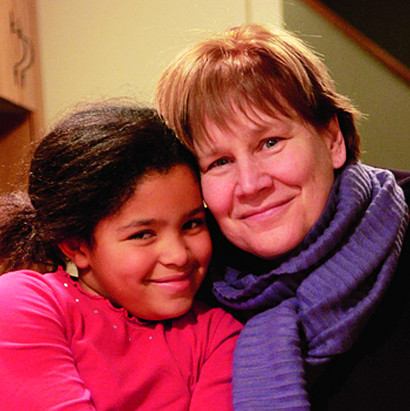Reenvisioning Foster Care
Open gallery

“Mom, I don’t want any toys for Christmas. I just want to be with my sisters and brother that day.” That seemingly simple request from her youngest daughter, adopted from foster care, highlights one of the core values Judy Cockerton BA ‘73 champions in her quest to help inspire a reenvisioning of foster care in America: keeping siblings connected.
“One day children in foster care have siblings; the next day they don’t. Or so it seems when they’re removed from their homes and placed under separate roofs,” she says. “It turns their world upside down and can completely undermine their health and well-being.”
Before she became a full-time advocate for children experiencing foster care, Cockerton was a mom, a teacher, and the owner of two specialty toy stores in Massachusetts.
“I was a teacher who used my toy stores to enrich family life,” she says. “We offered quality playthings, community events like fall festivals and game nights, and fun in-store activities.”
Fifteen years after becoming a businesswoman, Cockerton read an article about a five-month-old baby who had been kidnapped from his foster home. That article was a catalyst for action. She placed a call to the local child welfare office and became a foster parent and child advocate.
“Every year as many as 25,000 young Americans experiencing foster care ‘age out,’ usually on their 18th birthday, without any enduring family relationships or community connections,” she says. “After a childhood spent in a system that has made every important life decision for them, they are now on their own with no one to count on—at risk for homelessness, incarceration, unemployment, and lives of poverty. That dismal statistic moved me to sell my stores and create new options to help prevent children from aging out.”
Since 2002, Cockerton has founded two nonprofits in Massachusetts to serve as national models for improving the lives of the nearly half a million children in foster care: the Treehouse Foundation and Sibling Connections. She also writes a blog called Out of the Foster Care Box.
Treehouse partnered with Beacon Communities to build a multigenerational community where families adopting children from foster care live with caring neighbors. Since its opening in 2006, the Treehouse community has been home to more than 100 people, ranging in age from 4 to 90.
The Treehouse approach is being adopted by people in other regions, including the Portland area. “It’s critical that the people involved with Treehouse share what we’re learning so that positive change can take root and spread,” says Cockerton. “As a country, we need to be aware of what helps our young people with foster care histories flourish and move forward.”
Cockerton also brought Camp To Belong to Massachusetts and developed a monthly program through Sibling Connections. Her goal is to reconnect sisters and brothers in safe, supportive, and fun environments all year long.
“Seventy-five percent of children placed in foster care are separated from their siblings,” says Cockerton. “Our programs help kids create joyous shared memories while they swim, sled, skate, and ride horses together.”
Of her commitment to enhancing the lives of children in foster care, she says, “This is not a job— it’s my life. I’m honored to be doing this work for my daughter, her siblings, and their peers across the country.”
—by Pattie Pace
The Treehouse development, located in East Hampton, Massachusetts, is a multigenerational community where families adopting children from foster care live with caring neighbors.
More L&C Magazine Stories
Lewis & Clark Magazine is located in McAfee on the Undergraduate Campus.
MSC: 19
email magazine@lclark.edu
voice 503-768-7970
fax 503-768-7969
The L&C Magazine staff welcomes letters and emails from readers about topics covered in the magazine. Correspondence must include your name and location and may be edited.
Lewis & Clark Magazine
Lewis & Clark
615 S. Palatine Hill Road MSC 19
Portland OR 97219

